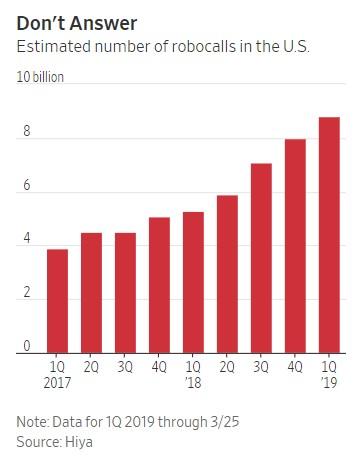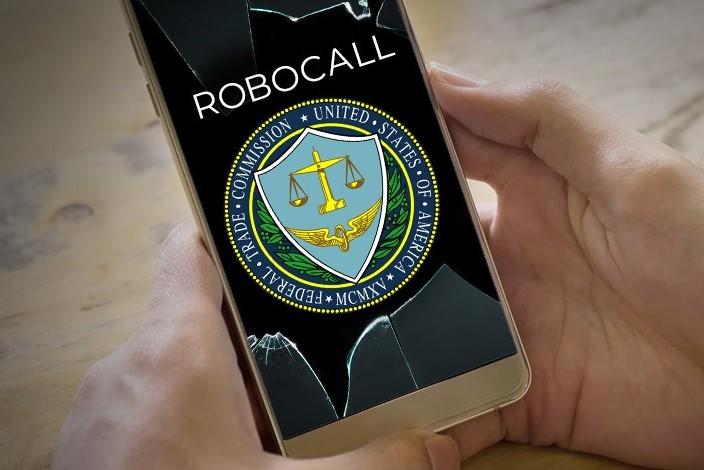The Federal Communications Commission has been fighting what seems like a never-ending battle against robocallers for the last several years. Of the $208 million in fines that they have levied against illegal automated callers, they have only collected about $6,790, according to the Wall Street Journal.
Since 2015, the FCC has ordered those who’ve violated the Telephone Consumer Protection Act to pay fines of $208.4 million, including forfeiture orders in cases that involve robocalling, Do Not Call registry and telephone solicitation violations. The $6,790 collected represents an extraordinarily paltry sum, 0.003% percent of what has been fined.
The total sum secured by the FTC through court judgments in cases involving civil penalties for robocalls or Do Not Call registry violations, plus the sum requested for consumer redress in fraud related cases, has been $1.5 billion since 2004. It has collected on $121 million of that total. This marks about 8%, a number the agency is proud of.
Ian Barlow, coordinator of the agency’s Do Not Call program, said:
“That number stands on its own. We’re proud of it; we think our enforcement program is pretty strong.”
A spokesman for the FCC said that his agency doesn’t have the authority to enforce forfeiture orders that it issues, but the Justice Department does. Many of the people that the FCC tries to fine are individuals and small operations, which makes it difficult for them to pay the penalties.
“Fines serve to penalize bad conduct and deter future misconduct,” an FCC spokesman said to the Wall Street Journal.
But the inability to collect on these penalties shows the limits that the government has in putting a stop to these illegal calls. In addition, it also shows why the threat of large fines may not be effective in deterring bad actors.
Margot Saunders, senior counsel at consumer advocacy group National Consumer Law Center said:
“It’s great that we have these laws; it’s great that we have public enforcement, but because there are so many calls and so many callers, the public enforcement is a joke. It doesn’t even make a dent.”
In 2018, there were 26.3 billion unwanted robocalls made to US mobile phones, according to robocall-blocking app Hiya. Another estimate put that number at nearly 48 billion. Companies like AT&T are already working to implement call verification systems that regulators and industry executives say will help identify legitimate calls.
The FTC and FCC say there are challenges to collecting these penalties, especially when small illegal operations quickly close up shop and change their name. Many are also based overseas, making it difficult to seize assets.
Daniel Delnero, a senior attorney at Squire Patton Boggs in Atlanta, said: “Fines are a deterrent on legitimate companies that have real assets in the U.S. For a spam caller or overseas operator, that’s really just pushing for Social Security numbers or bank account information—it’s less of a deterrent, because they don’t really have anything that could be collected anyway.”
In cases where there are civil penalties, the FTC may secure a judgment but it still may be difficult to get individuals to pay. Congress requires the agency to consider an individual‘s ability to pay, which may help them wind up being charged with a smaller sum. For example, in 2017, two defendants faced civil penalties of $2.7 million in a California suit filed by the FTC but were ultimately ordered to pay just $225,000 or less after disclosing their financials.
Ajit Pai, chairman of the FCC since January 2017 said: “It’s important to send a signal to other would-be robocallers that you’re not going to be able to get away with it.”
Of the $202 million in fines issued during Pai’s tenure, nothing has been collected.
via ZeroHedge News https://ift.tt/2JOLlYv Tyler Durden

